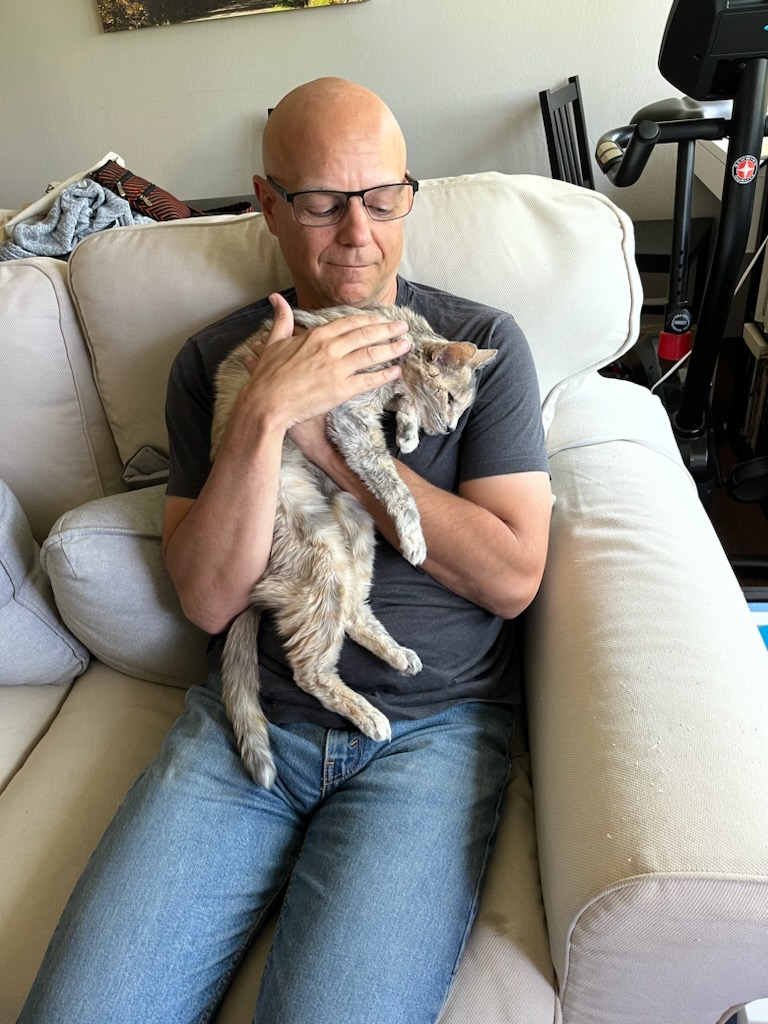Three tips for overcoming disappointment and moving forward
Monday was a tough day for me.
I woke up to the news that a deal I’d been working on had fallen through. Just a couple days earlier, it seemed in the bag.
Three months of hope, anticipation, and work crashed down suddenly.
I’m not one to get ahead of a process. Despite my overabundance of positivity, I tend toward caution about things like this—a deal isn’t done until the ink is dry.
Still, this one had me pretty amped. It wasn’t going to change my life, but it was a big deal and had begun to really mean a lot to me. I’d put my whole self into it. I’d let down my guard and opened myself to its possibility.
So when I got the news, it was a gut punch. It was a tough moment, even for this unapologetic optimist.
But rather than drop into despair (which I kind of wanted to do), I took a deep breath and immediately turned to my backup plan… only to find out that it, too, had suddenly evaporated.
While I had thought Plan A was highly likely, I had been assured that Plan B was a certainty.
So, losing both Plan A and Plan B in a matter of hours had me feeling like Glass Joe.
With Plan A and Plan B gone, I would have turned to Plan C, but there was no Plan C. I was back to the beginning, with the three months I’d invested feeling like wasted time.
I felt pretty depressed all day. (There was another reason for feeling so down, but that’s not the point of this post.)
Those bad feelings will be with me for a while. But wallowing in negativity rarely does much good, and I also just don’t like it. I prefer to be forward-thinking. I prefer to look to the future.
So I’m working on executing my three tips for overcoming disappointment.
Tip 1: Observe and name your feelings
Whether you’re a person who needs to have a good, long, sobbing ugly cry, or you’r more of a silent stoic like me, you will have feelings after a big disappointment.
I think it’s important to feel the feelings you have, and to process them in whatever (healthy) way you process feelings. But it’s also important to make sure those feelings don’t create false narratives around the situation, or control how you respond to it.
Try to step outside yourself and the situation, and observe the feelings you’re having. Don’t judge; just observe. And then name those feelings.
For me, in this case, I was feeling foolish and inadequate, like I was to blame or I’d done something wrong. I also felt betrayed. A deep sense of defeatism began creeping in. Certainly, I felt sad and frustrated, which I could sense might turn to anger and judgment if left to fester.
Those feelings were telling me one story about the situation. But it’s not the complete story.
By observing these feelings and naming them, I’m better able to recognize how they’re warping my perspective, how they’re distorting the reality, how they’re keeping me from learning and growing.
This doesn’t mean the feelings are wrong or unjustified. Instead, being able to understand how this situation made me feel will make me better able to learn from this and move forward.
Tip 2: Recover your sense of perspective
Look on the bright side. It’ll all be okay. Find the positive. Turn it into a gift.
Toxic positivity is not good (that’s why it’s called toxic), but there’s real power in coming back to the moment and recovering your sense of perspective.
It’s not easy for everyone to learn how to do this, and it can take years of practice to have it feel natural.
For me, positivity is innate and is my natural state, so when I think about how short life is, that reminds me to notice the things I’m grateful for, the things that provide beauty and joy, the things that are good. It brings me back to this moment and puts the situation in perspective in the big picture.
Other people have different ways of putting disappointment in perspective. I saw a meme yesterday with the caption “but did anyone die?” For some people, recognizing that it could be far worse helps ground them.
When it’s fresh, disappointment grows outsized and takes up your entire view. Pulling back and being able to see it with proper perspective will help put you in a mind to learn from it and move forward.
Tip 3: Be mission-oriented
A big disappointment can be like a black hole, dragging all your attention into it. It can pull your mind away what’s really important to you.
Always return to what’s most important to you. Don’t let the shiny objects or dark places distract you along the journey.
I call this being mission-oriented.
This phrase comes from my time working with nonprofits. Every nonprofit has a stated mission (for example, ending food insecurity). But the work of running a nonprofit is hard. Raising money, building and running programs, and running a business are complex tasks.
Opportunities and setbacks can coax you into spending time, money, and attention on things that don’t actually serve your primary mission.
And so it goes with people, as well. I counsel my clients all the time in reconnecting with their core values and their “why”—be mission-oriented.
When you’re in a mission-oriented mindset, it’s much easier to put each disappointment behind you. You’ll find you’re looking at the road ahead, moving toward your destination. That’s better than looking in the mirror at the pothole you just hit… which makes you more likely to hit additional potholes in the future.
Bonus tip: work with a pro (or just a friend)
When big disappointment hits, it can be incredibly helpful to have someone who can just listen. You may need to talk with a licensed therapist if you have a lot of deep emotions to deal with. You may want to work with a coach like me on how to move forward. Or you may just need a good friend who can listen without judgment while you process and move through it.
If you dump on a friend, though, tell them up front whether you are looking for a sympathetic ear or a session of active solutioning. Friends have your best interest at heart, but they can often misread the situation and try to take you down the wrong path. Some friends are good at stoking rage, some are good at seeing the positive side, some are good at propping you up, some are good at planning solutions, some are good at distraction. Picking the right friend for what you need and telling them what you most need will help them be there for you in the way you want, instead of ratchet up your tension by making you feel unheard or misunderstood.
Farewell to Alice the cat
The other reason Monday was tough was that it was the last day in this life for Alice the Cat.
Alice had been with the family for more than 17 years, and she’d been in decline and growing discomfort for quite a while. Before the end, she was able to spend time with many of the people who knew her best. The end was gentle and pain-free.








1 Comment
My most-viewed posts, and an unboxing for New Year’s - Gray Bear Coaching LLC · December 31, 2024 at 11:37 am
[…] Three tips for overcoming disappointment and moving forwardApril 24, 2023When a sure-thing deal fell through, I had to get through that disappointment. Here’s how I did it. […]